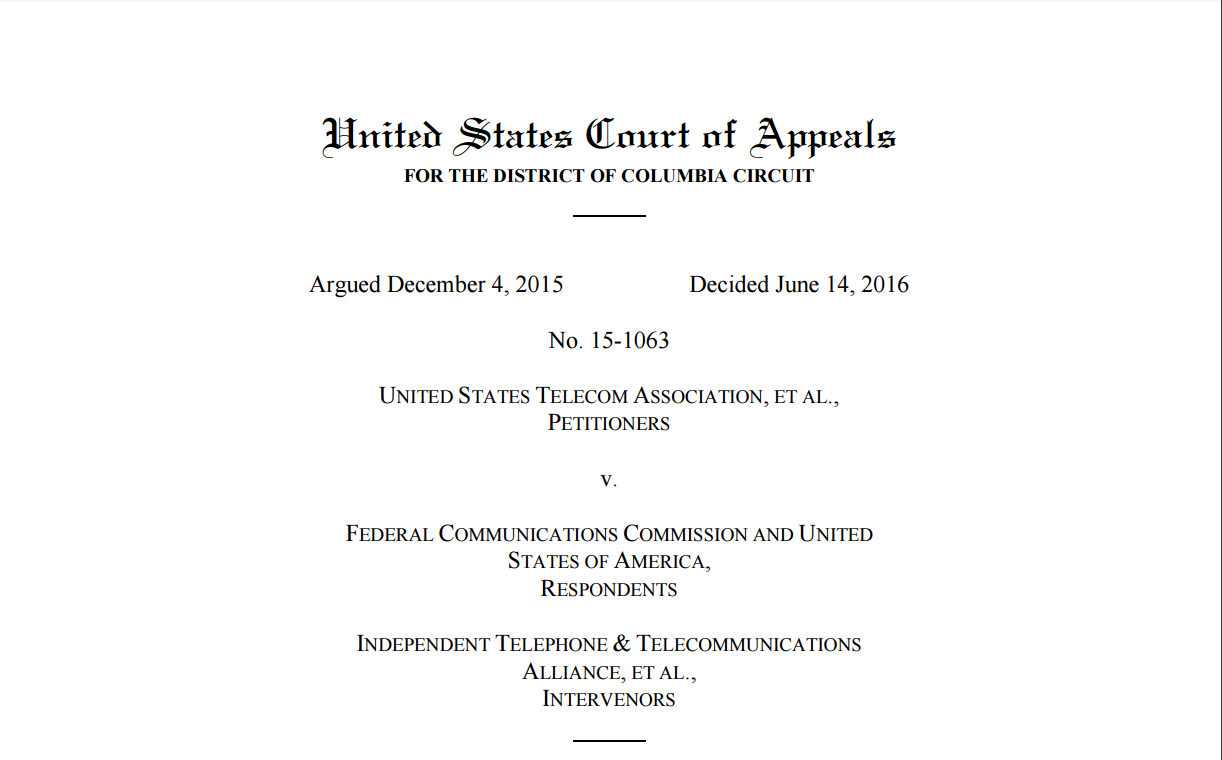A federal appeals court in Washington, D.C. decided to keep the rules that require Internet providers to treat all web traffic equally. Internet providers had been challenging the FCC’s determination that phone and cable companies should not throttle or block websites from companies that are not willing to pay extra for a virtual fast lane online.
Essentially, it means that high-speed internet should be defined as a utility rather than as a luxury and that no broadband service provider, whether fixed or mobile, should interfere with a consumer or business’ access to a fast, fair, and open internet. The FCC summarizes the rules as follows:
Bright Line Rules:
- No Blocking: broadband providers may not block access to legal content, applications, services, or non-harmful devices.
- No Throttling: broadband providers may not impair or degrade lawful Internet traffic on the basis of content, applications, services, or non-harmful devices.
- No Paid Prioritization: broadband providers may not favor some lawful Internet traffic over other lawful traffic in exchange for consideration of any kind—in other words, no “fast lanes.” This rule also bans ISPs from prioritizing content and services of their affiliates.
David Tatel and Sri Srinivasan, the judges who wrote the opinion, put the ruling in very practical terms, citing the impact of broadband internet services on our daily lives: “Over the past two decades, this content has transformed nearly every aspect of our lives, from profound actions like choosing a leader, building a career, and falling in love to more quotidian ones like hailing a cab and watching a movie.” You can read the entire opinion online here.
In a statement, Tom Wheeler, chairman of the F.C.C. wrote: “After a decade of debate and legal battles, today’s ruling affirms the commission’s ability to enforce the strongest possible internet protections — both on fixed and mobile networks — that will ensure the internet remains open, now and in the future.” Whether this is true or not, remains to be seen, and the broadband providers have already stated their plans to challenge the ruling and take it to the Supreme Court. Supporters of the ruling included Netflix, Facebook, Twitter and Alphabet, Inc.’s Google (they wrote an amicus brief under the name of Internet Association), while the rules continue to be opposed by providers such as Verizon, Comcast, AT&T and cable and wireless trade groups. In a statement from 2015, Verizon accused the FCC of imposing 1930s rules on the internet (and they wrote their statement in a typewriter font).
Does Your State Support Net Neutrality? All 50 states ranked by support for net neutrality.



